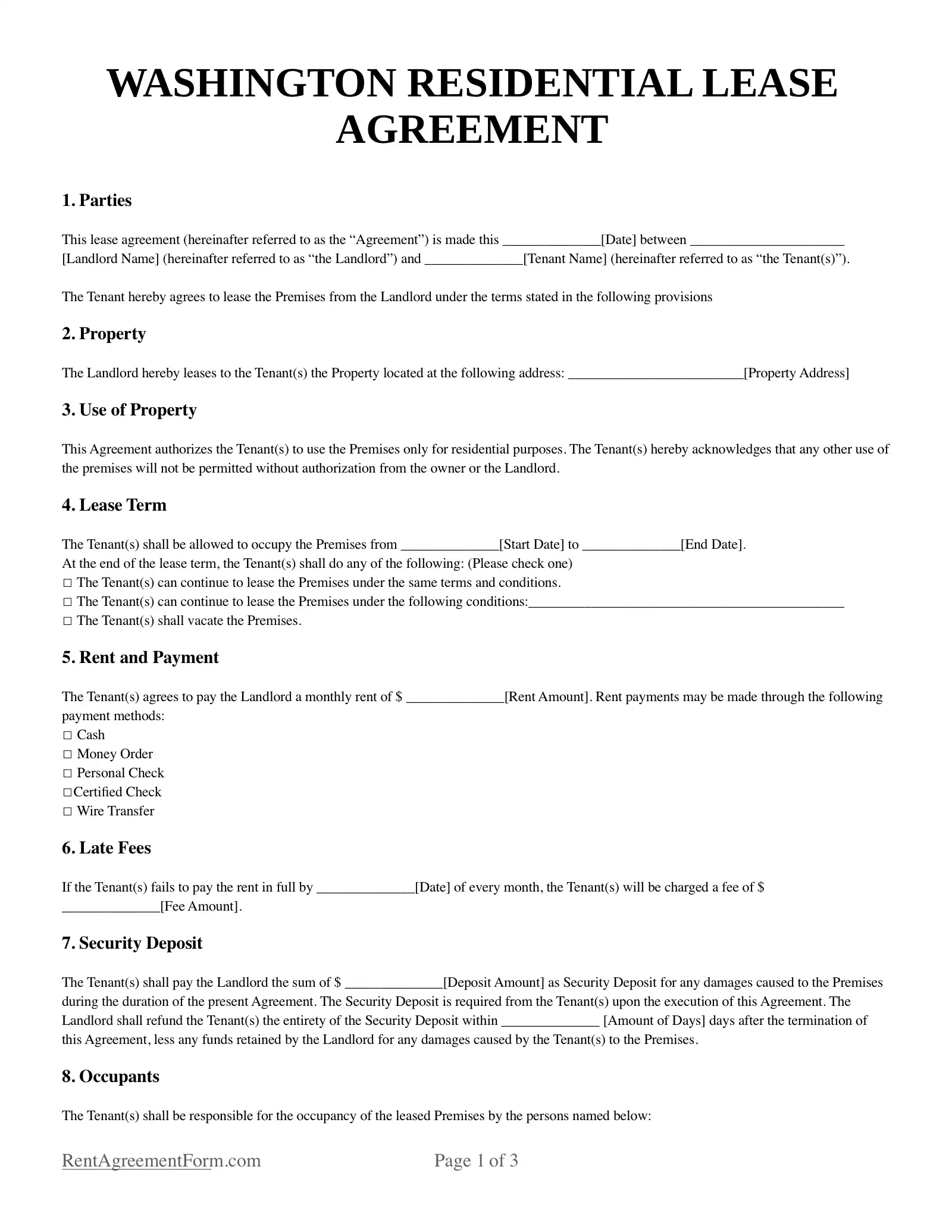Washington Residential Lease Agreement Form
Many people want to live in Washington for its moderate temperature, beautiful outdoors, and ample work opportunities. For those looking to rent an apartment or house in the Evergreen State, they have to submit a Washington rental application form and the corresponding fee. Once approved, they can start discussing the Washington Residential Lease Agreement Form.
A residential lease agreement form is a contract between the landlord, also known as the lessor, and the tenant, also referred to as the lessee. The lease discusses the terms and conditions of the temporary occupation of the rental real estate. The form contains a brief description of the property. It also enumerates the names of all the occupants, including pets.
The landlord and tenant will agree on the terms of the lease. It specifies rent payment and rent duration. The agreement also enumerates the responsibilities of both parties. The landlord is responsible for ensuring that the tenant will have a safe and habitable place to live while the tenant is obligated to take care of the property and pay rent on time.
When the parties have agreed on the terms and conditions of the lease, they can sign the standard form.

Required Disclosures
- Lead-Based Paint Disclosure - Lead-based paint was banned in the country in 1978. If the rental property was built before then, it’s the landlord’s responsibility to inform the tenant of the dangers of lead-based paint. They should also provide the tenant with educational materials about the health hazards of lead-based paint (Lead-Based Paint Disclosure Rule (Section 1018 of Title X)).
- Fire Protection and Evacuation - Tenants should have access to a Fire Protection and Evacuation Plan approved by the Fire Marshal’s Office. The landlord should also provide other fire safety information to the tenant. The tenant must be made aware that it’s their responsibility to maintain smoke detectors.
- Mold Disclosure - The landlord should provide the tenant with written information about the danger of indoor mold and whether mold is or is not present in the property. In addition, the information should include recommendations on how to prevent mold infestation.
- Landlord’s Identity - The tenant should know the name and address of the landlord for communication purposes. If the landlord doesn’t live in Washington, a representative should be named and they should be authorized to receive communication and other legal documents.
Rent Grace Period
Washington has a five-day grace period, which means landlords can only charge a late fee five days after the rent is due. If the tenant still fails to pay rent, the landlord may send a 14-day notice to pay or ask the tenant to vacate the property (WA Rev Code § 59.18.170 (2021)).
Security Deposits
There is no limit to how much security deposit a Washington landlord can charge. Tenants can pay the security deposit in installments unless the amount is less than a quarter of the monthly rent. In Washington, a landlord may also ask for a separate pet security deposit in case the pet will cause damage to the property.
The lease should contain the terms and conditions of the security deposit. There should be a written checklist to easily identify damage to the property and items that could be charged from the security deposit. However, there should be no deductions for the normal wear and tear of a property. Both parties should sign the checklist and the accompanying statement.
The landlord has 21 days to return the security deposit or part of it to the tenant after the property has been vacated (WA Rev Code § 59.18.260-280).